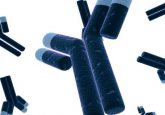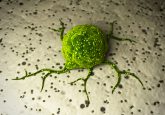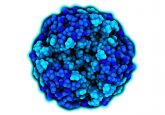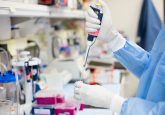Trailblazing ‘Lab-on-a-Chip’ device enables significant cost reduction of lab tests

Research engineers from Rutgers University (NJ, USA) have developed a device that can significantly reduce the cost of laboratory tests for medical disorders and diseases, such as HIV, Lyme disease and syphilis.
The researchers have recently published their results in the Royal Society of Chemistry’s journal, Lab on a Chip.
The device uses miniaturized channels and valves that replace benchtop assays, which usually require large fluid samples and chemicals that are mixed manually. This microfluid technology can potentially enable new research as it can perform complex analyses using up to 90% less fluid than conventional tests. These developments make testing more affordable for patients and researchers alike.
“The main advantage is cost – these assays are done in labs and clinics everywhere,” commented first author Mehdi Ghodbane. “A great deal of research has been hindered because in many cases one is not able to extract enough fluid.”
Furthermore, the new device requires only 10% of the chemicals usually required in multiplex immunoassays, which can cost up to $1500. The device also automates much of the skilled labor involved in performing conventional tests.
“The results are as sensitive and accurate as the standard benchtop assay,” explained Martin Yarmush, the Paul and Mary Monroe Chair and Distinguished Professor of biomedical engineering at Rutgers. “With our technology, researchers will be able to perform large-scale controlled studies with comparable accuracy to conventional assays.”
To date, animal research on central nervous system disorders, including spinal cord injury and Parkinson’s disease, has been limited due to the fact that researchers were unable to extract sufficient quantities of cerebrospinal fluid to allow conventional assays. It is hoped the new device could also aid more comprehensive research in autoimmune diseases including rheumatoid arthritis. Similar to cerebrospinal fluid, researchers have struggled to extract sufficient synovial fluid from laboratory animals for their research.
The device combines several capabilities for the first time. A single device analyzes 32 samples at once and can measure widely varying concentrations, of as many as six proteins in a sample. The researchers are currently exploring the commercial potential of their technology.
Sources: ‘Lab-on-a-Chip’ technology cuts costs of lab tests for HIV, Lyme disease, other diseases; Ghodbane M, Stucky EC, Maquire TJ et al. Development and validation of a microfluidic immunoassay capable of multiplexing parallel samples in microliter volumes. Lab Chip. 15, 3211-3221 (2015)





